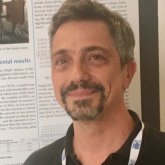PhD position on Dependability Driven on Device Learning Algorithms for Embedded Neuromorphic Architectures
Develop the next generation of dependability-driven on device learning algorithms for our RISCV-based embedded neuromorphic processor. You will pioneer reliability and security aware training techniques that adapt to hardware constraints, pushing the boundaries of low power edge intelligence in consumer audio and healthcare applications.
Edge devices that can learn autonomously while guaranteeing dependability are key to the next wave of AI adoption. Within this journey, you will focus on algorithmic innovations that exploit—and are constrained by—an emerging neuromorphic processor that our hardware team is taping out. The core challenge is to co-design algorithms and architecture so that robustness, security, and energy efficiency are all first-class citizens.
As the PhD candidate for the “architecture-aware algorithm”, you will:
- Devise on-device learning rules tailored to dataflow neuromorphic cores.
- Quantify and mitigate fault modes arising from device noise, variability, radiation, and adversarial tampering.
- Build an open-source software stack that maps algorithms to hardware, including compiler extensions and runtime monitors.
- Demonstrate your solutions on real-world use cases
You will collaborate closely with hardware designers and industrial partners, benefiting from their complementary expertise and datasets. The position is embedded in the CAES chair of the EEMCS faculty, which offers a vibrant, international research environment and access to state-of-the-art fabrication and test facilities.
Information and application
Are you interested in this position? Please send your application via the 'Apply now' button below before June 30, 2025, and include:
- A Curriculum Vitae, highlighting all the evidence of your excellence.
- A cover letter, explaining your background in half of a page.Transcripts for your bachelor and master courses with a short explanation of how to read it, if necessary. If the transcript is not in English, you can provide an unofficial translation for this stage of application.
- Proof of English proficiency
About the department
The PhD student will join CAES, a group working on the most efficient and effective computer architectures of the future, from large-scale data-center servers to low-power/small-scale embedded systems. The group's research sits at the border between EE and CS, aiming to bridge any gaps between these two sides of computing systems.
About the organisation
The faculty of Electrical Engineering, Mathematics and Computer Science (EEMCS) uses mathematics, electronics and computer technology to contribute to the development of Information and Communication Technology (ICT). With ICT present in almost every device and product we use nowadays, we embrace our role as contributors to a broad range of societal activities and as pioneers of tomorrow's digital society. As part of a people-first tech university that aims to shape society, individuals and connections, our faculty works together intensively with industrial partners and researchers in the Netherlands and abroad, and conducts extensive research for external commissioning parties and funders. Our research has a high profile both in the Netherlands and internationally. It has been accommodated in three multidisciplinary UT research institutes: Mesa+ Institute, TechMed Centre and Digital Society Institute.




